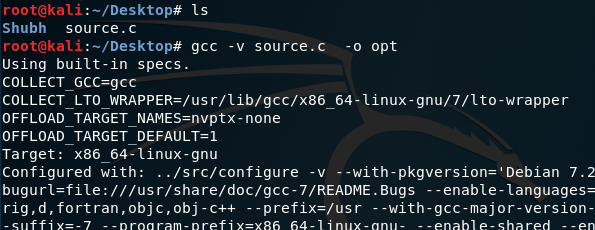GCC stands for GNU Compiler Collections which is used to compile mainly C and C++ language. It can also be used to compile Objective C and Objective C++. The most important option required while compiling a source code file is the name of the source program, rest every argument is optional like a warning, debugging, linking libraries, object file etc. The different options of gcc command allow the user to stop the compilation process at different stages.
Syntax:
gcc [-c|-S|-E] [-std=standard]
Example: This will compile the source.c file and give the output file as a.out file which is default name of output file given by gcc compiler, which can be executed using ./a.out
gcc source.c

Most Usefull Options with Examples: Here source.c is the C program code file.
- -o opt: This will compile the source.c file but instead of giving default name hence executed using ./opt, it will give output file as opt. -o is for output file option.
gcc source.c -o opt

- -Werror: This will compile the source and show the warning if any error is there in the program, -W is for giving warnings.
gcc source.c -Werror -o opt

- -Wall: This will check not only for errors but also for all kinds warning like unused variables errors, it is good practice to use this flag while compiling the code.
gcc source.c -Wall -o opt

- -ggdb3: This command give us permissions to debug the program using gdb which will be described later, -g option is for debugging.
gcc -ggdb3 source.c -Wall -o opt

- -lm : This command link math.h library to our source file, -l option is used for linking particular library, for math.h we use -lm.
gcc -Wall source.c -o opt -lm

- -std=c11 :This command will use the c11 version of standards for compiling the source.c program, which allows to define variable under loop initializations also using newer standards version is preferred.
gcc -Wall -std=c11 source.c -o opt

- -c : This command compile the program and give the object file as output, which is used to make libraries.

- -v : This option is used for the verbose purpose.


